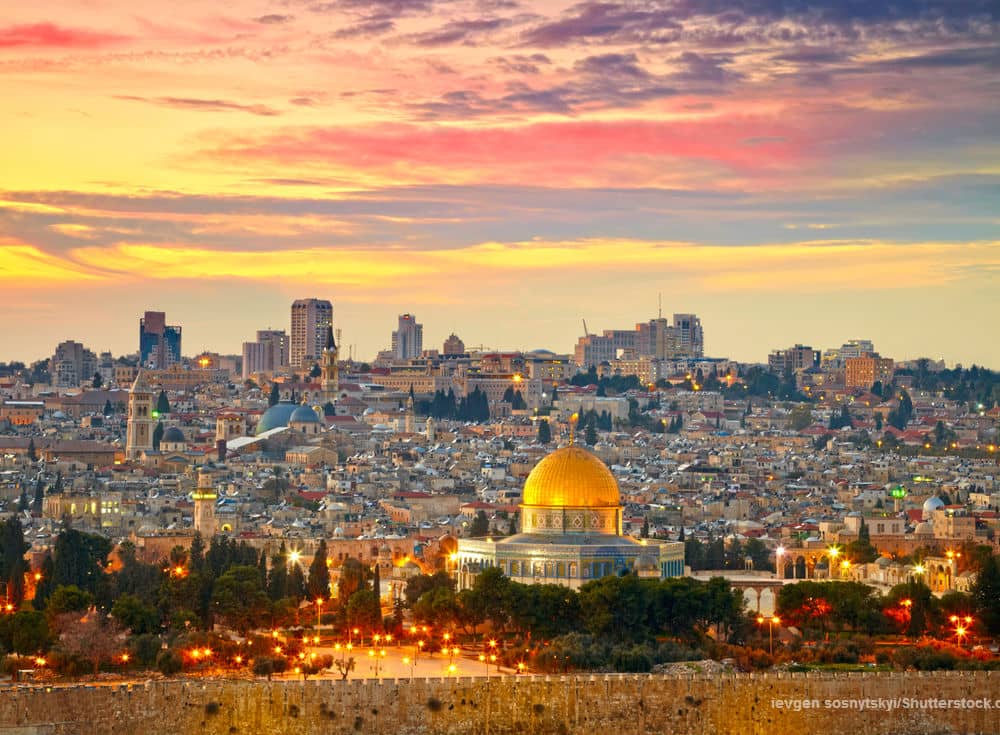Attending High Holidays services is one of the primary markers--along with the Passover seder--of American Jewish religious affiliation today. Of course there are plenty of Jews who attend synagogue weekly--or even daily--and who keep kosher or observe the Sabbath or otherwise lead fairly devoutly Jewish lives. I'm one of a much larger number of American Jews who step foot in synagogue only when it really counts. I may be a "High Holidays Jew," but I don't consider myself any less a Jew than those who attend synagogue more regularly. And, for many of us, what will bring us to synagogue Saturday morning certainly isn't that we find the Rosh Hashanah service so meaningful. The truth is, at most synagogues the prayers are in Hebrew, which--valiant efforts of Hebrew-school teachers notwithstanding--remains a completely foreign tongue to most of us.
But that obliviousness is the whole point. The ritual of attending High Holidays services is able to stay so essential to Jewish identity today precisely because when they're in synagogue, most standard-issue, secularized American Jews don't have the slightest idea what's going on. It's because this ritual takes place in a different language that I can participate in it.
I confess, I don't really believe--in God, or, for the most part, in the truth of the Torah. I believe in the tradition, and I strongly self-identify as a Jew, but I suspect it's exactly because I have no idea what the prayers mean that I'm able to go to synagogue and savor the rituals. If I actually knew what I was saying, I'm not sure that I could say it. In a way, this is a great luxury for Jews like me. Plenty of people raised as Christians, for example, attend worship services on Easter and Christmas without really believing, but they have the disadvantage of actually understanding their prayers.
A good example is the Shema--perhaps the fundamental prayer in Judaism, recited three times a day by religious Jews. It has a familiar, elegant melody. Pretty, moving, and vaguely martial, like the Marseillaise, I thoroughly enjoy a rousing recitation. "Shema! Yisrael! Adonai! Eloheinu! Adonai! Ehad!" It's exhilarating. But to me, it's also more or less a series of nonsense words, a sacred koo-koo-ka-choo and do-be-do-be-do. Still, in a large congregation, on a good day, it can be moving.
This disconnect between tradition and translation enables the ritual aspects of Judaism to become even more meaningful for secular Jews like me. Without really having any idea what's being said, the whole liturgy--a regular Shabbat version, or the more involved High Holiday iterations--instead takes on simply a comforting, reassuring beauty. So what if I don't understand it; I enjoy hearing it and recognizing it and joining it. The prayers and songs are beautiful and somewhat haunting. In their mass Pavlovianism (we're taught the exact moments to recite certain lines, so we can chime in at the appropriate moment with "barechu u-mevorach sh'mo!") there is community. They're words that mean nothing to me, but they're also words that I have said and that my parents have said, and that, much more significantly, my grandparents and great-grandparents and great-great-grandparents, through Ellis Island and Russian pogroms and who knows what else, have said.
This dichotomous situation is, I think, a natural fit for secularized American Jews. We've always been at the forefront of progressive and liberal movements, have supported intellectualism and the academy and a reasoned question of inherited assumptions. From Albert Einstein to Stephen Jay Gould, Jews have been the ones who explained exactly why the world and the universe and man exist-scientifically, not religiously. Amid all the encouraged questioning and exploring and reconsidering, it seems only natural we'd grow skeptical of Biblical accounts.
For many of us High Holiday Jews, a big part of the religion isn't so much the theology but the heritage and the tradition, which are passed down from generation to generation regardless of whether my generation has actually absorbed the meanings behind the traditions. It's a cultural thing, a sensibility thing, a political thing, an intellectual thing. It's about a fondness for Woody Allen and Thomas Friedman and argument and debate and discussion and ideas. It's about a kind of background and upbringing, where all those things--even from the time you were a little kid-were regular topics for dinner--table discussion.
So I'll go home Friday night, I'll eat my mother's brisket and kugel, and we'll all--my family, our close family friends--argue about politics and Broadway and what time we'll be getting up the next morning. Then we'll go to synagogue the next morning, where I'll say plenty of English words I understand--schmoozing with old friends is a big part of the day, and a big part of our Jewish culture--and plenty of Hebrew words I don't. And I'll be proudly Jewish doing it.

